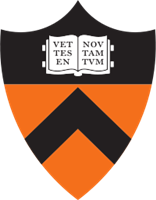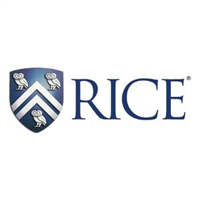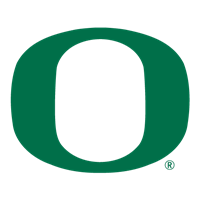What do they do?
Conduct qualitative and quantitative chemical analyses or experiments in laboratories for quality or process control or to develop new products or knowledge.
Also known as:
Air Quality Chemist, Analytical Chemist, Chemical Lab Scientist (Chemical Laboratory Scientist), Chemist, Forensic Chemist, Formulary Chemist, Formulation Chemist, Industrial Chemist, Nuclear Chemist, Organic Chemist, Pharmaceutical Chemist, Process Chemist, Product Development Chemist, QC Chemist (Quality Control Chemist), QC Scientist (Quality Control Scientist), R and D Chemist (Research and Development Chemist), Research Chemist, Research Scientist, Sanitary Chemist, Scientist
-
6%
Change
Ranks #43 in job growth rate330Job Openings
Ranks #11 in net job growth
-
Princeton University
Princeton, NJ
-
University of Chicago
Chicago, IL
-
Yale University
New Haven, CT
-
Rice University
Houston, TX
-
University of Oregon
Eugene, OR
Looking for colleges that offer a specific major? Use the College Match Tool to find your best-matched schools and discover your estimated Net Price!
- Doctorate or Professional Degree (21%)
- Master's degree (22%)
- Bachelor's degree (51%)
- Associate's degree (2%)
- Some college, no degree (2%)
- High school diploma equivalent (2%)
- Less than high school diploma (<1%)
Most Popular Majors that prepare Chemists
-
#1
-
Degrees Granted
2,207
-
Female Students
1,061
-
Male Students
1,146
-
Median Starting Salary
$45,700
-
-
#2
-
Degrees Granted
63
-
Female Students
29
-
Male Students
34
-
Median Starting Salary
$38,300
-
-
#3
-
Degrees Granted
37
-
Female Students
14
-
Male Students
23
-
Median Starting Salary
$45,700
-
-
#4
-
Degrees Granted
21
-
Female Students
12
-
Male Students
9
-
Median Starting Salary
$45,700
-
-
#5
-
Degrees Granted
17
-
Female Students
7
-
Male Students
10
-
Median Starting Salary
$45,700
-
People in this career often have these skills:
- Science - Using scientific rules and methods to solve problems.
- Reading Comprehension - Understanding written sentences and paragraphs in work-related documents.
- Critical Thinking - Using logic and reasoning to identify the strengths and weaknesses of alternative solutions, conclusions, or approaches to problems.
- Speaking - Talking to others to convey information effectively.
- Active Listening - Giving full attention to what other people are saying, taking time to understand the points being made, asking questions as appropriate, and not interrupting at inappropriate times.
- Writing - Communicating effectively in writing as appropriate for the needs of the audience.
- Mathematics - Using mathematics to solve problems.
- Active Learning - Understanding the implications of new information for both current and future problem-solving and decision-making.
- Complex Problem Solving - Identifying complex problems and reviewing related information to develop and evaluate options and implement solutions.
- Monitoring - Monitoring/Assessing performance of yourself, other individuals, or organizations to make improvements or take corrective action.
People in this career often know a lot about:
- Chemistry - Knowledge of the chemical composition, structure, and properties of substances and of the chemical processes and transformations that they undergo. This includes uses of chemicals and their interactions, danger signs, production techniques, and disposal methods.
- English Language - Knowledge of the structure and content of the English language including the meaning and spelling of words, rules of composition, and grammar.
- Mathematics - Knowledge of arithmetic, algebra, geometry, calculus, statistics, and their applications.
- Production and Processing - Knowledge of raw materials, production processes, quality control, costs, and other techniques for maximizing the effective manufacture and distribution of goods.
- Administration and Management - Knowledge of business and management principles involved in strategic planning, resource allocation, human resources modeling, leadership technique, production methods, and coordination of people and resources.
- Computers and Electronics - Knowledge of circuit boards, processors, chips, electronic equipment, and computer hardware and software, including applications and programming.
- Administrative - Knowledge of administrative and office procedures and systems such as word processing, managing files and records, stenography and transcription, designing forms, and workplace terminology.
People in this career often have talent in:
- Oral Comprehension - The ability to listen to and understand information and ideas presented through spoken words and sentences.
- Written Comprehension - The ability to read and understand information and ideas presented in writing.
- Oral Expression - The ability to communicate information and ideas in speaking so others will understand.
- Written Expression - The ability to communicate information and ideas in writing so others will understand.
- Deductive Reasoning - The ability to apply general rules to specific problems to produce answers that make sense.
- Inductive Reasoning - The ability to combine pieces of information to form general rules or conclusions (includes finding a relationship among seemingly unrelated events).
- Problem Sensitivity - The ability to tell when something is wrong or is likely to go wrong. It does not involve solving the problem, only recognizing that there is a problem.
- Information Ordering - The ability to arrange things or actions in a certain order or pattern according to a specific rule or set of rules (e.g., patterns of numbers, letters, words, pictures, mathematical operations).
- Category Flexibility - The ability to generate or use different sets of rules for combining or grouping things in different ways.
- Near Vision - The ability to see details at close range (within a few feet of the observer).
- Mathematical Reasoning - The ability to choose the right mathematical methods or formulas to solve a problem.
- Number Facility - The ability to add, subtract, multiply, or divide quickly and correctly.
- Flexibility of Closure - The ability to identify or detect a known pattern (a figure, object, word, or sound) that is hidden in other distracting material.
People in this career often do these activities:
- Develop new or advanced products or production methods.
- Analyze chemical compounds or substances.
- Test quality of materials or finished products.
- Establish standards for products, processes, or procedures.
- Prepare scientific or technical reports or presentations.
- Maintain laboratory or technical equipment.
- Prepare compounds or solutions for products or testing.
- Research methods to improve food products.
- Collaborate on research activities with scientists or technical specialists.
- Monitor operational procedures in technical environments to ensure conformance to standards.
- Supervise scientific or technical personnel.
- Manage scientific or technical project resources.
This page includes data from:

 Occupation statistics: USDOL U.S. Bureau of Labor Statistics Occupational Employment Statistics
Occupation statistics: USDOL U.S. Bureau of Labor Statistics Occupational Employment Statistics









